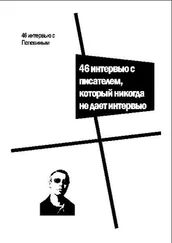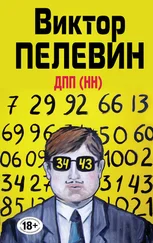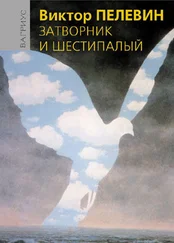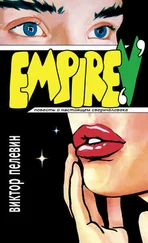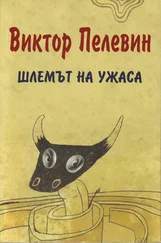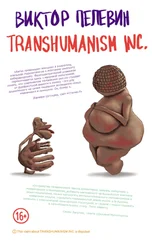Виктор Пелевин - Buddha's Little Finger
Здесь есть возможность читать онлайн «Виктор Пелевин - Buddha's Little Finger» весь текст электронной книги совершенно бесплатно (целиком полную версию без сокращений). В некоторых случаях можно слушать аудио, скачать через торрент в формате fb2 и присутствует краткое содержание. Жанр: Современная проза, на английском языке. Описание произведения, (предисловие) а так же отзывы посетителей доступны на портале библиотеки ЛибКат.
- Название:Buddha's Little Finger
- Автор:
- Жанр:
- Год:неизвестен
- ISBN:нет данных
- Рейтинг книги:5 / 5. Голосов: 1
-
Избранное:Добавить в избранное
- Отзывы:
-
Ваша оценка:
- 100
- 1
- 2
- 3
- 4
- 5
Buddha's Little Finger: краткое содержание, описание и аннотация
Предлагаем к чтению аннотацию, описание, краткое содержание или предисловие (зависит от того, что написал сам автор книги «Buddha's Little Finger»). Если вы не нашли необходимую информацию о книге — напишите в комментариях, мы постараемся отыскать её.
Buddha's Little Finger — читать онлайн бесплатно полную книгу (весь текст) целиком
Ниже представлен текст книги, разбитый по страницам. Система сохранения места последней прочитанной страницы, позволяет с удобством читать онлайн бесплатно книгу «Buddha's Little Finger», без необходимости каждый раз заново искать на чём Вы остановились. Поставьте закладку, и сможете в любой момент перейти на страницу, на которой закончили чтение.
Интервал:
Закладка:
For several seconds the silence hung in the air above the seats, and then they suddenly erupted into louder applause than I had ever managed to elicit even in ‘The Stray Dog’ in St Petersburg. I noticed out of the corner of my eye that Anna had risen and was walking away along the aisle, but just at that moment it did not bother me in the least. If I am honest, I just confess that I felt genuinely flattered, even to the extent that I forgot all the bitter thoughts I had been thinking about my audience. I brandished my fist at some invisible foe, then thrust my hand into my pocket, pulled out my Browning and fired twice into the air. The response was a rumbling cannonade from the bristling forest of gun-barrels that had sprouted above the audience, followed by a roar of sheer delight. I gave a brief bow and left the stage, then skirted round a group of weavers who were still clapping, before heading for the manor-house.
My success had somewhat intoxicated me. I was thinking that genuine art is distinguished from its false counterpart by its ability to beat a path to even the most coarse and brutalized of hearts, and its ability to exalt to the heavens, to a world of total and unfettered freedom, even the most hopeless victim of the infernal global trance. However, I came to my senses soon enough as I was stung by the realization, painful though it was for my own vanity, that they had applauded me simply because my poem had seemed to them to be something in the nature of a warrant which widened by a few extra degrees the scope of their unlimited and unpunished licence: to Lenin’s maxim that we should ‘plunder what has been plundered’ had been added permission to don a bagel, however unclear the repercussions of that might yet he.
I went back to my room, stretched out on the divan and stared at the ceiling with my hands clasped behind my back. I thought of how everything that had happened to me during the past two or three hours was a magnificent illustration of the eternal, unchanging fate of the Russian intellectual. Writing odes about Red banners in secret, but earning his keep with verses in honour of the name-day of the Head of Police or the opposite, perceiving with his inner eye the final appearance of the Emperor, while mouthing off about the hanging of a count’s bagels on the horny genitals of the proletariat.
Thus it will be always, I thought. Even if we were to allow that power in this terrifying country might not be won by one of the cliques warring for it, but could simply fall into the hands of villains and thieves of the kind to be found in all the various different ‘Musical Snuffboxes’, the Russian intelligentsia would still go running to them for business like a dog’s barber.
While thinking all of this, I had already fallen half-asleep, but I was summoned back to reality by an unexpected knock at my door.
‘Yes, yes.’ I shouted, without even bothering to get up from the bed, ‘come in!’
The door opened, but no one came in. I waited for several seconds until my patience was exhausted and I raised my head to look. Anna was standing in the doorway, wearing that same black velvet dress.
‘May I come in?’ she asked.
‘Yes, of course.’1 said, rising hurriedly, ‘please. Have a seat.’
Anna sat down in the armchair - the second when her back was turned was just long enough for me to sweep a tattered puttee lying on the floor under the bed with a movement of my foot.
Once in the armchair, Anna folded her hands on her knees and contemplated me thoughtfully for several seconds with a gaze that seemed clouded by some thought that was not yet entirely clear even to her.
‘Would you like to smoke?’ I asked.
She nodded. I took out my papyrosas and placed them in front of her on the table, then set beside them the saucer which served for an ashtray and struck a match.
Thank you.’ she said, releasing a thin stream of smoke in the direction of the ceiling. There seemed to be some kind of struggle taking place within her. I was about to make some banal remark in order to start the conversation, but I stopped myself just in time when I remembered how that usually ended. Then suddenly Anna herself spoke.
‘I cannot say that I really liked your poem about that princess.’ she said, ‘but in comparison with the other participants in the concert you cut rather an impressive figure.’
Thank you.’ I said.
‘And by the way, I spent all last night reading your poems. The garrison library turned out to have a book…’
‘Which one?’
‘That I do not know. The first few pages were missing, someone must have torn them out for rolling cigarettes.’
‘Then how could you tell that the poems were mine?’
‘I asked the librarian. Anyway, there was one poem, a reworking of Pushkin, about opening one’s eyes and seeing nothing but snow, empty space and mist, and then on further and further… It was very good. How did it go now? No, I can’t remember. Ah, yes:
But desire burns within you still,
The trains depart for it,
And the butterfly of consciousness
Flits from nowhere into nowhere.
‘Yes, I recall it now,’ I said. ‘The book is called Songs of the Kingdom of “I”‘
‘What a strange title. It does sound rather smug.’
‘Not really,’ I said. ‘That is not the point. It is simply that in China there once used to be a kingdom whose name consisted of a single letter - «A». I was always amazed by that. You know, we talk about «a» forest or «a» house, but here all we have is «a». Like an indication of something that lies beyond a point at which words come to an end, and all we can say is «a», but «a» what exactly is impossible to say.’
‘Chapaev would immediately ask you whether you can say what you mean when you say «1».’
‘He has already asked. But in relation to the book - it really is one of my weakest, by the way, I must give you the others some time - I can explain. I used to do a lot of travelling, and then at some moment I suddenly realized that no matter where I might go, in reality I can do no more than move within a single space, and that space is myself. At the time I called it «I», but now I would probably call it «A».’
‘But what about other people?’ Anna asked.
‘Other people?’ I queried.
‘Yes. You write a lot about other people. For instance.’ she knitted her brows slightly, evidently in the effort of remembering, ‘take this:
They gathered in the old bathhouse,
Put on their cufflinks and their spats,
Then banged their heads against the wall,
Counting out the days and the miles…
I hated the sight of their faces so badly
That ‘I could not live without their company -
The sudden stench of the morgue
Refines the language of recall, and I…
‘Enough.’ I interrupted her, ‘I remember. I would not say that is really my best poem.’
‘I like it. And in general, Pyotr, I liked your book terribly. But you have not answered my question: what about other people?’
‘I am not sure I quite understand what you mean.’
‘If everything that you can see, feel and understand is within you, in that kingdom of «I», does that mean that other people are quite simply not real? Me, for instance?’
‘Believe me, Anna,’ I said passionately, ‘if there is one thing in the world that is real to me, then it is you. I have suffered so much from our… What can I call it - our falling-out
that
‘That is my fault.’ said Anna. ‘I do have such a bad character.’
‘What nonsense, Anna, I have nobody to blame but myself. You have shown such patience in bearing all the clumsy, absur-’
‘Don’t let us try to outdo each other in politeness. Tell me simply - do I really mean as much to you as it might appear from the phrases you have uttered at certain times?’
Читать дальшеИнтервал:
Закладка:
Похожие книги на «Buddha's Little Finger»
Представляем Вашему вниманию похожие книги на «Buddha's Little Finger» списком для выбора. Мы отобрали схожую по названию и смыслу литературу в надежде предоставить читателям больше вариантов отыскать новые, интересные, ещё непрочитанные произведения.
Обсуждение, отзывы о книге «Buddha's Little Finger» и просто собственные мнения читателей. Оставьте ваши комментарии, напишите, что Вы думаете о произведении, его смысле или главных героях. Укажите что конкретно понравилось, а что нет, и почему Вы так считаете.

